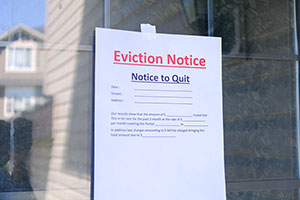(The opinions and views expressed in the commentaries and letters to the Editor of The Somerville Times belong solely to the authors and do not reflect the views or opinions of The Somerville Times, its staff or publishers)

Last week, Governor Maura Healey announced sweeping changes to the Emergency Housing Assistance shelter system, with families facing homelessness due to no-fault eviction now among other groups receiving prioritization.
Migrant families will now be placed at a “temporary respite center” for five days, followed by a waiting list of at least six months for shelter. With a capacity of 7,500 families and a need that extends far beyond that, the necessity for solutions to our shelter crisis is apparent. And the Commonwealth of Massachusetts is clearly searching for them: Between shortening limits for shelter stays, offering to pay travel expenses for migrant families with alternative places to go, and bolstering services to help families exit shelters more quickly, the emergency obviously has no easy fixes. But this begs the question: Why not end the practice of no-fault eviction and lower the need for emergency shelter among residents to begin with?
No-fault evictions are not the same as other evictions. Most evictions are filed due to non-payment or lease violations; households facing these evictions are not eligible for shelter, and will remain ineligible after the new regulations take effect. No-fault evictions, on the other hand, can be initiated without reason. A tenant who has paid rent on time, maintained the unit, caused no disturbances, and done everything they’re “supposed to do” can still have the rug suddenly swept out from under their feet, solely at the discretion of their landlord, leaving them without housing and with an eviction on their record. From April 2023-2024, no-fault eviction made up over 12% of all eviction cases filed in Massachusetts. Meanwhile, our neighbors in New Hampshire have already banned no-fault evictions statewide.
Obviously, the shelter crisis wouldn’t be completely solved with a ban on no-fault eviction. But no-fault evictions are making up a notable portion of requests for services. The most recently available Quarterly Emergency Assistance Legislative Reports show that in FY2023 Q1 and Q2, eviction and threat of eviction made up 11% of all reasons for homelessness for families admitted into the shelter system. In the total year prior, they made up 356 out of 2,756 reasons for admittance, or 12.9%. Reducing the demand for shelter by hundreds of households by ending no-fault eviction would at least ease the burden on the shelter system.
Renters are becoming increasingly familiar with no-fault evictions, especially as large investors continue to view Massachusetts housing as a piggy bank rather than a social determinant of health. Between 2004 and 2018, over 20% of residential purchases in the Greater Boston region were made by an investor, and interest in Greater Boston real estate hasn’t slowed since then. Advocates are increasingly sounding the alarm on the trend of investors purchasing buildings, initiating no-fault evictions, and then rerenting units at significantly higher rents. At the Community Action Agency of Somerville (CAAS), our organizers are currently assisting tenants facing that exact situation: After an out-of-state investor purchased 22 Sargent Ave in Somerville earlier this year, two of the three units are now navigating no-fault eviction cases in court.
The Affordable Homes Act passed this month created a process for tenants to seal no-fault eviction records, which is a big step forward for tenant protections. But record sealing doesn’t address the most immediate challenge for tenants facing no-fault eviction: moving. As of July 2024, the average rent for a two-bedroom apartment in Boston was $4,414 per month according to apartments.com. Receiving a no-fault eviction means a family must be able to cover first, last, security, and increasingly often, a broker fee, or $17,656 in total, to find new housing. Not to mention also paying moving expenses or affording lost wages from time off work. It should come as no surprise that no-fault evictions are contributing to homelessness.
Massachusetts cannot sustainably allow investors to continue contributing to the shelter emergency for the sake of their own returns. As it stands, no-fault evictions are allowing landlords, especially investors, to destabilize households and pass the expense off to the Massachusetts Emergency Housing Assistance system. The Governor declared a state of emergency for shelters a year ago this August, yet our legislators have ignored the cause of over one-in-ten shelter cases that they have the power to address since then. Migrants and vulnerable families are paying the price. It’s time for Massachusetts to join states like New Jersey, California, New Hampshire, Oregon, and Washington, and pass just cause eviction laws.
— CAAS















Reader Comments